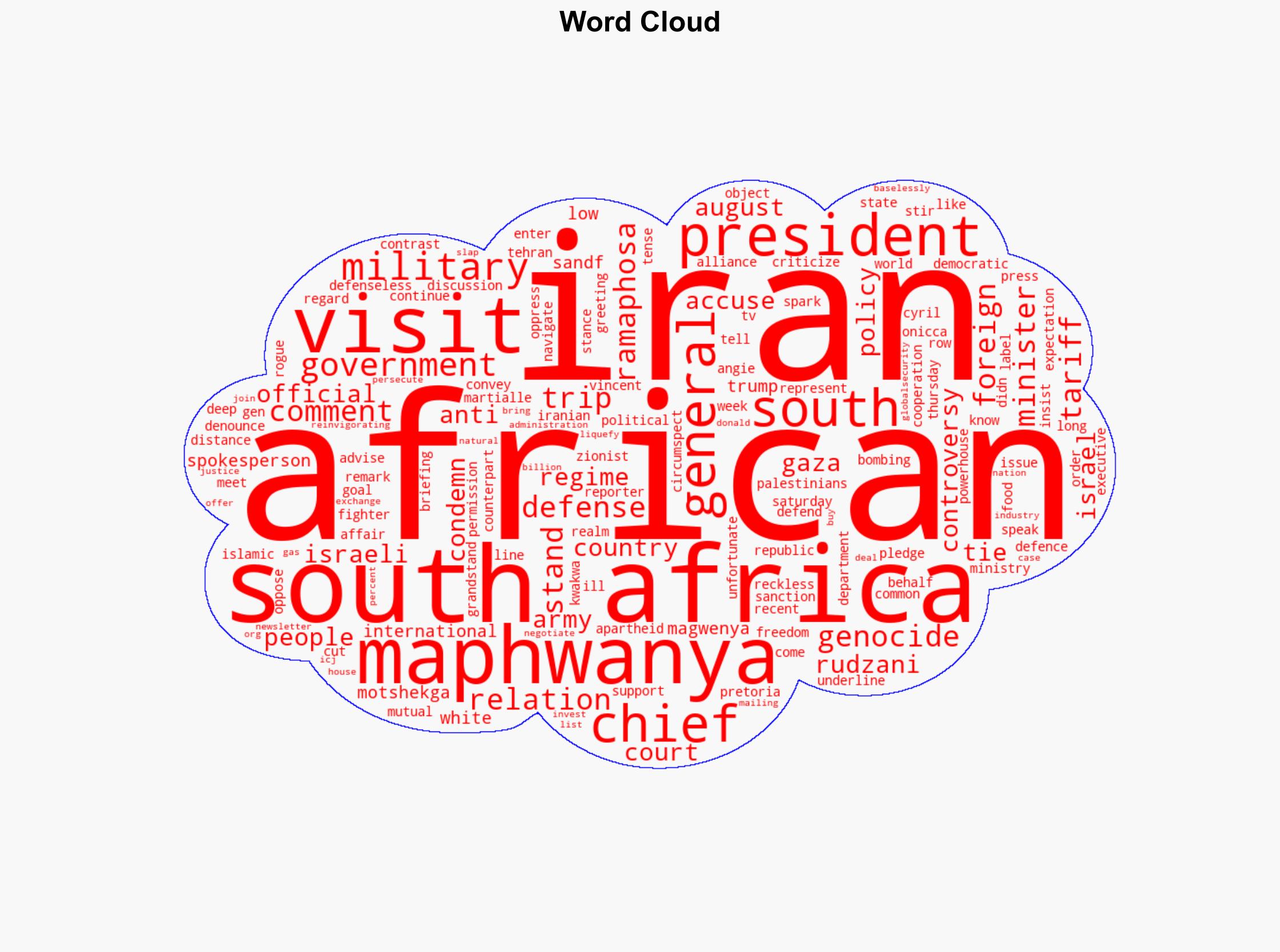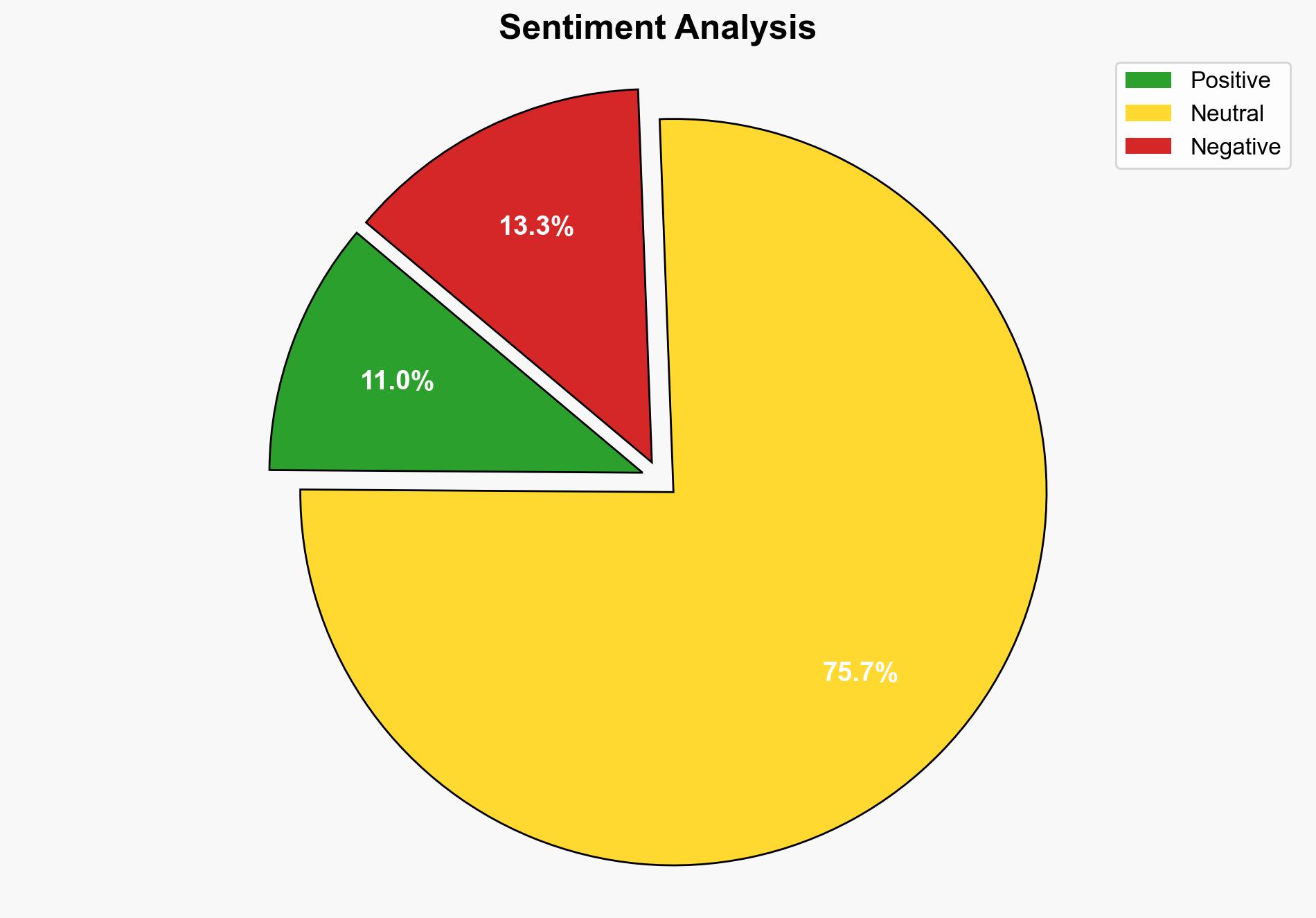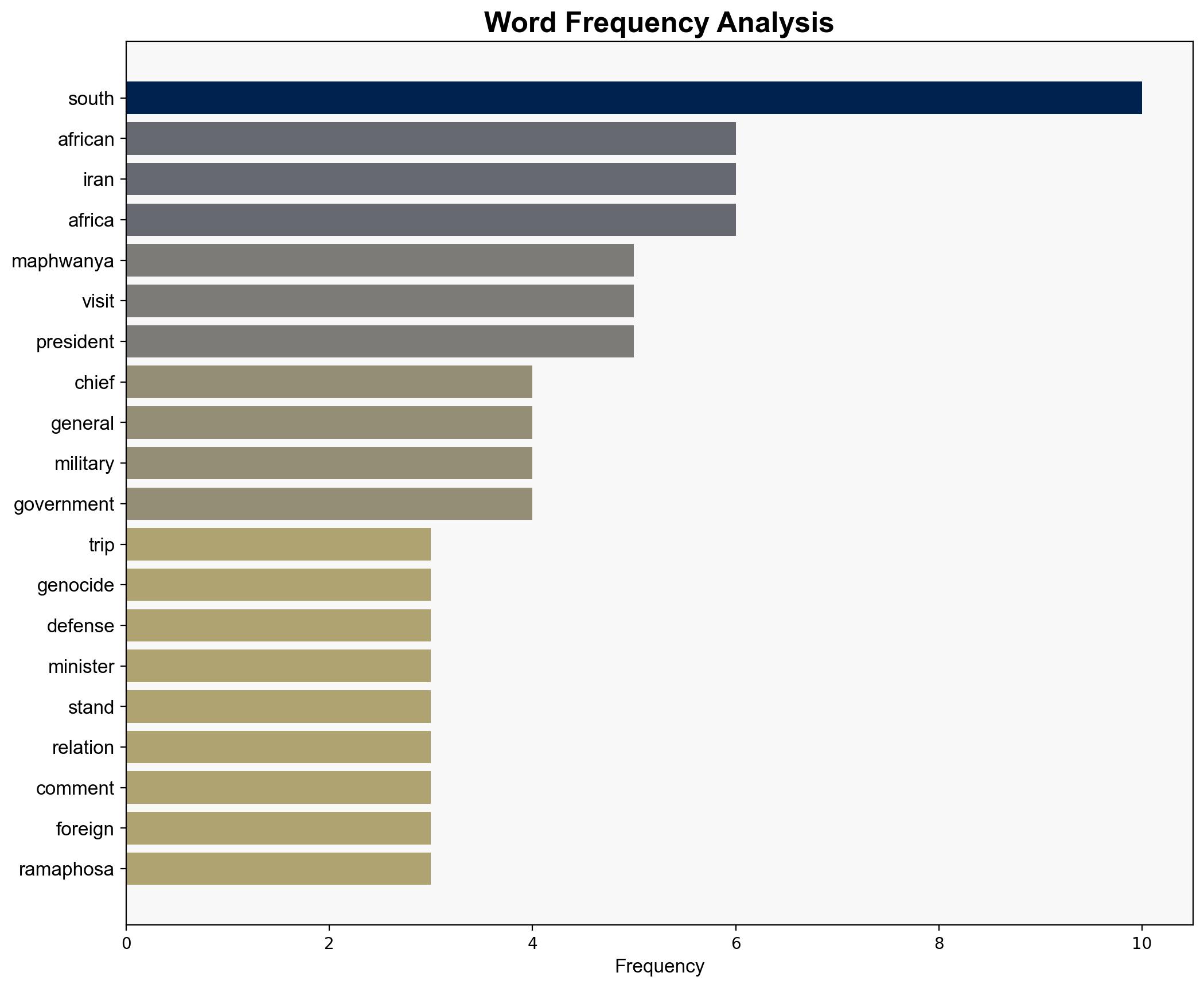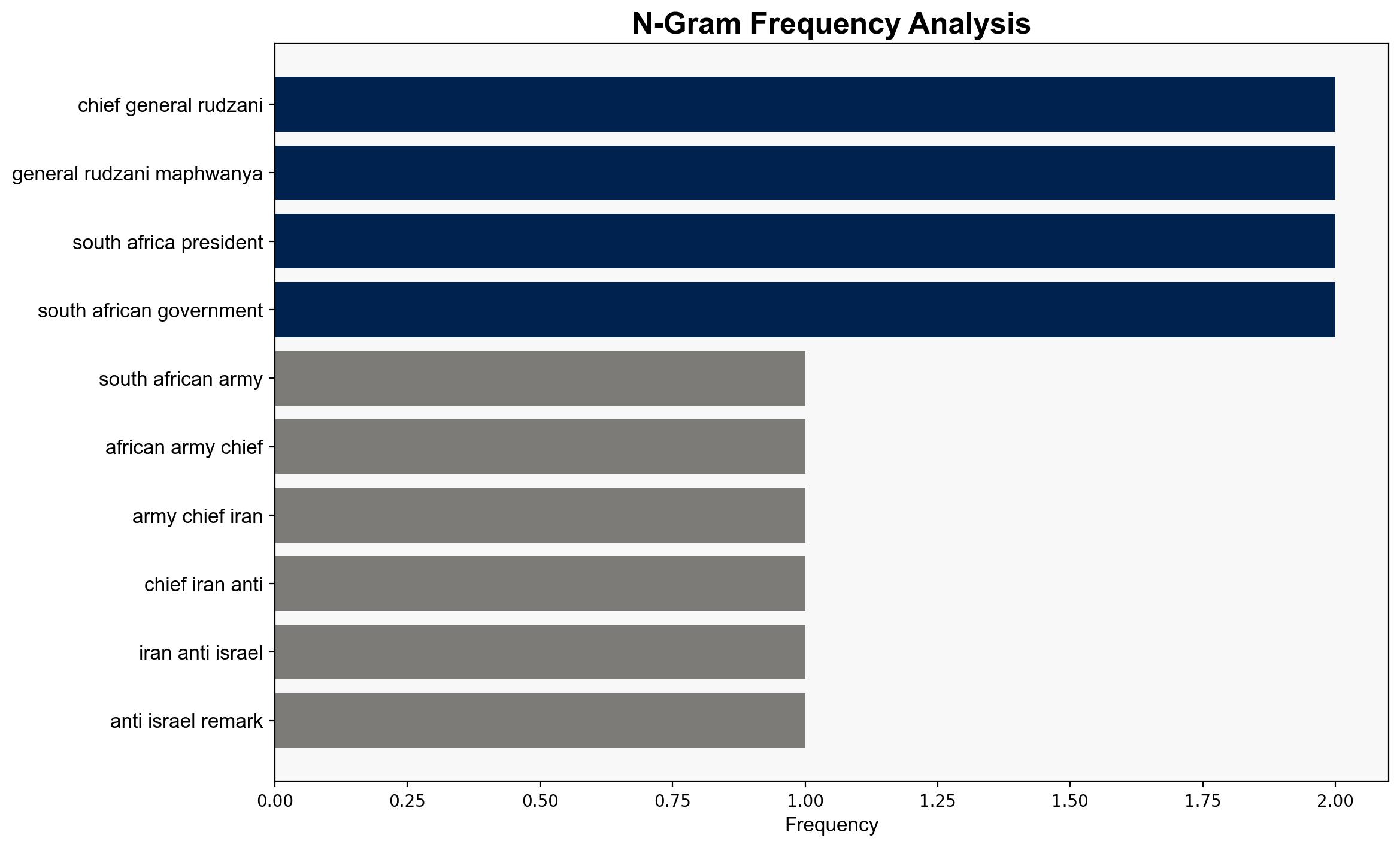South African Army Chief’s pro-Iran anti-Israel remarks stir controversy – Globalsecurity.org
Published on: 2025-08-18
Intelligence Report: South African Army Chief’s pro-Iran anti-Israel remarks stir controversy – Globalsecurity.org
1. BLUF (Bottom Line Up Front)
The controversy surrounding General Rudzani Maphwanya’s remarks highlights a potential shift in South Africa’s military diplomacy, with implications for its international relations. The most supported hypothesis suggests internal discord within South Africa’s government regarding foreign policy alignment. Confidence level: Moderate. Recommended action: South Africa should clarify its foreign policy stance to mitigate diplomatic fallout and maintain international relations.
2. Competing Hypotheses
1. **Hypothesis A**: General Maphwanya’s remarks reflect a personal stance rather than an official shift in South African foreign policy. This hypothesis is supported by the South African government’s distancing from his comments and labeling them as unfortunate.
2. **Hypothesis B**: The remarks indicate a strategic pivot towards strengthening ties with Iran, potentially signaling a broader realignment in South Africa’s foreign policy. This is supported by the emphasis on long-standing relations with Tehran and calls for deeper defense cooperation.
Using ACH 2.0, Hypothesis A is more supported due to the official distancing by the South African government and the lack of prior indicators of a policy shift.
3. Key Assumptions and Red Flags
– **Assumptions**: Hypothesis A assumes that the South African government maintains a consistent foreign policy stance and that Maphwanya’s comments were unauthorized. Hypothesis B assumes a deliberate strategic decision to align more closely with Iran.
– **Red Flags**: The inconsistency between the defense minister’s defense of the visit and the foreign affairs ministry’s distancing suggests internal discord. The lack of clarity on the South African President’s awareness of the trip raises questions about communication within the government.
4. Implications and Strategic Risks
– **Geopolitical**: A perceived alignment with Iran could strain South Africa’s relations with Western allies and Israel, potentially impacting trade and diplomatic engagements.
– **Economic**: Potential sanctions or trade barriers could arise if South Africa is perceived as aligning with Iran against Western interests.
– **Psychological**: Domestic and international perceptions of South Africa’s foreign policy coherence may be affected, impacting its global standing.
5. Recommendations and Outlook
- South Africa should issue a clear statement on its foreign policy to prevent misinterpretation and reassure international partners.
- Conduct an internal review of communication protocols to ensure alignment between military and governmental foreign policy actions.
- Scenario Projections:
- Best: South Africa clarifies its stance, maintaining strong international relations.
- Worst: Misalignment leads to diplomatic isolation and economic sanctions.
- Most Likely: Temporary diplomatic tensions, resolved through clarification and dialogue.
6. Key Individuals and Entities
– Rudzani Maphwanya
– Cyril Ramaphosa
– Angie Motshekga
– Vincent Magwenya
– Onicca Kwakwa
7. Thematic Tags
national security threats, geopolitical dynamics, foreign policy alignment, diplomatic relations




